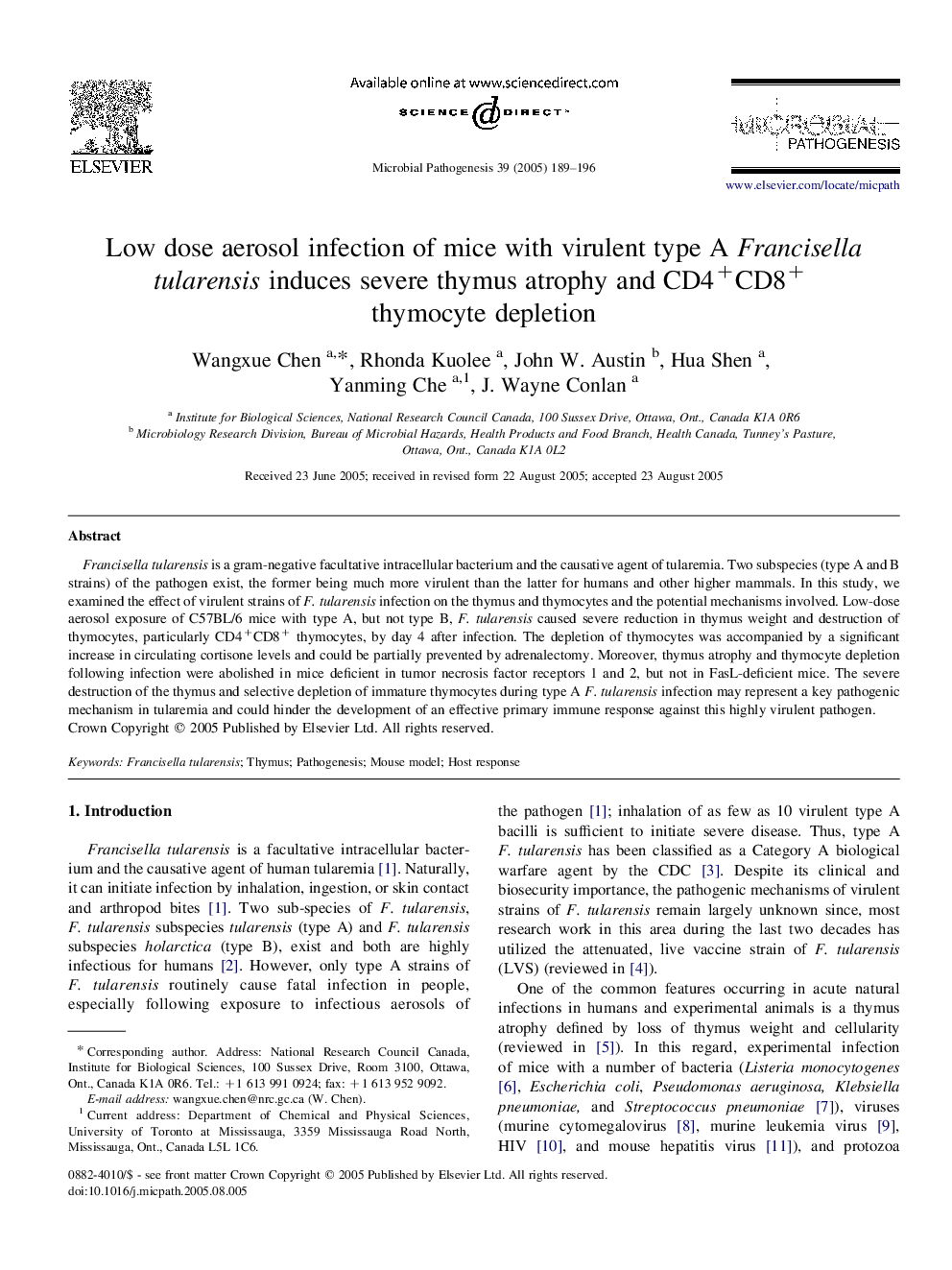| Article ID | Journal | Published Year | Pages | File Type |
|---|---|---|---|---|
| 9283816 | Microbial Pathogenesis | 2005 | 8 Pages |
Abstract
Francisella tularensis is a gram-negative facultative intracellular bacterium and the causative agent of tularemia. Two subspecies (type A and B strains) of the pathogen exist, the former being much more virulent than the latter for humans and other higher mammals. In this study, we examined the effect of virulent strains of F. tularensis infection on the thymus and thymocytes and the potential mechanisms involved. Low-dose aerosol exposure of C57BL/6 mice with type A, but not type B, F. tularensis caused severe reduction in thymus weight and destruction of thymocytes, particularly CD4+CD8+ thymocytes, by day 4 after infection. The depletion of thymocytes was accompanied by a significant increase in circulating cortisone levels and could be partially prevented by adrenalectomy. Moreover, thymus atrophy and thymocyte depletion following infection were abolished in mice deficient in tumor necrosis factor receptors 1 and 2, but not in FasL-deficient mice. The severe destruction of the thymus and selective depletion of immature thymocytes during type A F. tularensis infection may represent a key pathogenic mechanism in tularemia and could hinder the development of an effective primary immune response against this highly virulent pathogen.
Related Topics
Life Sciences
Immunology and Microbiology
Microbiology
Authors
Wangxue Chen, Rhonda Kuolee, John W. Austin, Hua Shen, Yanming Che, J. Wayne Conlan,
